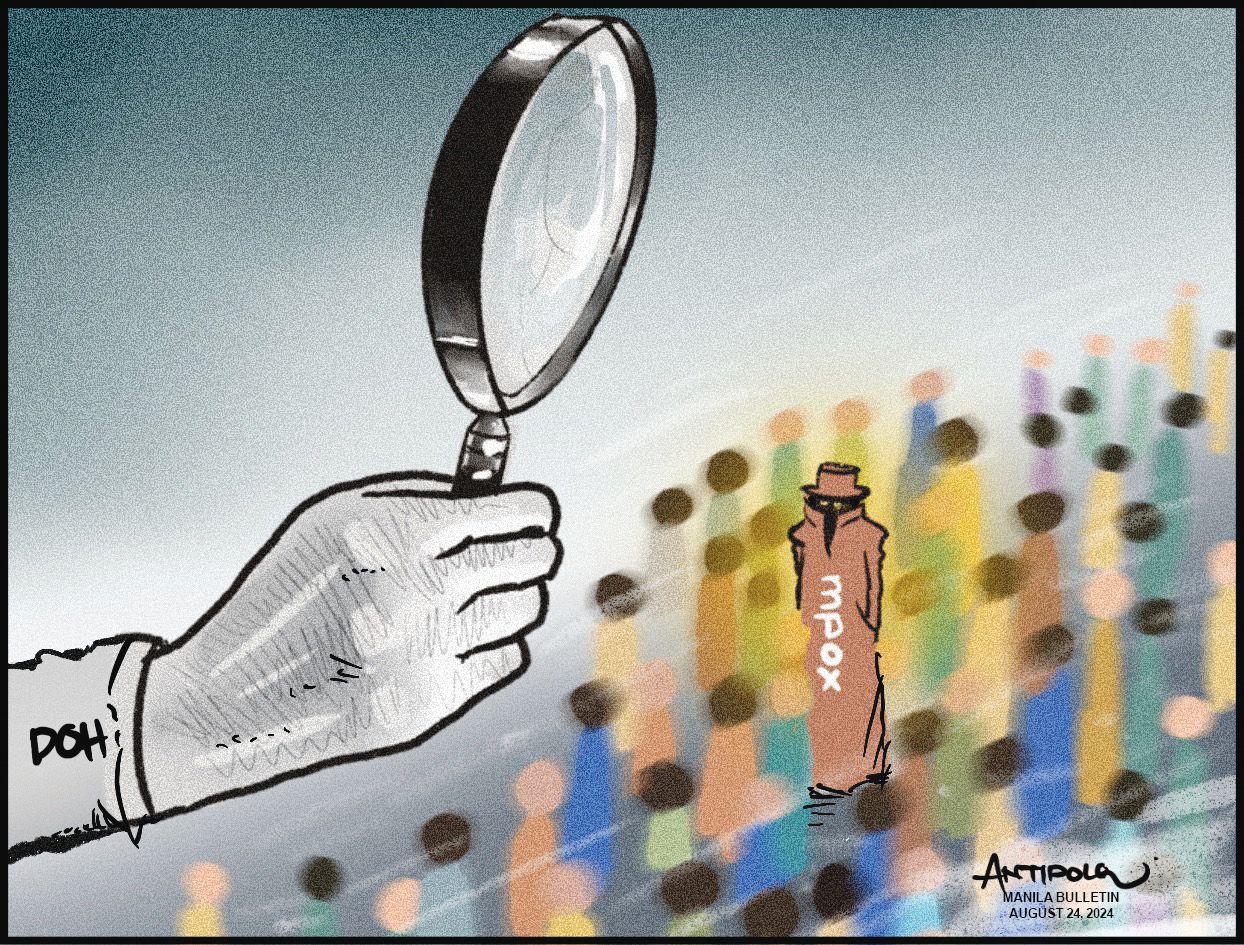Be aware of mpox: WHO declares Public Health Emergency of International Concern

On Aug. 14, 2024, the World Health Organization declared mpox, formerly known as “monkeypox,” as a Public Health Emergency of International Concern (PHEIC).
The Department of Health (DOH), as with health agencies around the world, was spurred into action, advised the public to be vigilant and especially to be aware of the precautionary measures to prevent the spread of mpox.
The WHO declaration came after WHO Director-General Dr. Tedros Adhanom Ghebreyesus had determined that the upsurge of mpox in the Democratic Republic of the Congo (DRC) and a growing number of countries in Africa constitutes a PHEIC. WHO said there have been more than 14,000 cases and 524 deaths in Africa this year, which already exceed last year's figures.
To prevent the spread of the virus, the DOH has emphasized the importance of heightened public awareness and practicing personal hygiene to prevent further transmission of the mpox virus.
The following information is gathered from the statements of DOH officials, so we can start an awareness campaign:
Mpox belongs to the same family of viruses as smallpox but causes milder symptoms like fever, chills and body aches. People with more serious cases can develop lesions on the face, hands, chest and genitals.
On Aug. 19, the DOH confirmed the first case of mpox in the Philippines this year – a 33-year-old male Filipino national with no travel history but with close, intimate contact three weeks before the onset of symptoms.
The health agency disclosed that this is the 10th detected case in the Philippines – four cases in 2022, five cases in 2023. There have been no deaths caused by mpox.
The DOH said all of these cases are classified as “clade II variants,” which are considered “milder” compared to the clade I variant spreading across African countries, which prompted the WHO to declare mpox a global health emergency.
This is the second time the WHO has declared mpox a PHEIC; the first was in 2022 when the viral disease was seen spreading in African countries.
Those infected develop a characteristic rash that often starts on the face and spreads to other parts of the body. This rash typically appears one to three days after the onset of fever and progresses through different stages before forming a scab, which eventually falls off.
“Patients with no other illnesses may stay at home after testing until all scabs fall off and a new layer of skin forms, typically after two to four weeks,” the health department said.
DOH Spokesperson Assistant Secretary Albert Domingo said there is no specific treatment for mpox. However, the viral disease is generally self-limiting and can resolve without treatment.
The viral disease can be transmitted through close, intimate contact with someone infectious, contaminated materials like used clothes or utensils, or infected animals.
“This is a virus but it's not airborne, so it's important to understand that its transmission is different from Covid-19,” Domingo said.
“We can avoid mpox,” DOH Secretary Teodoro J. Herbosa said. “Keeping our hands clean with soap and water, or with alcohol-based sanitizers, will help.”
“Our health system is working. We can handle the situation and will keep the public well-informed,” Herbosa said.